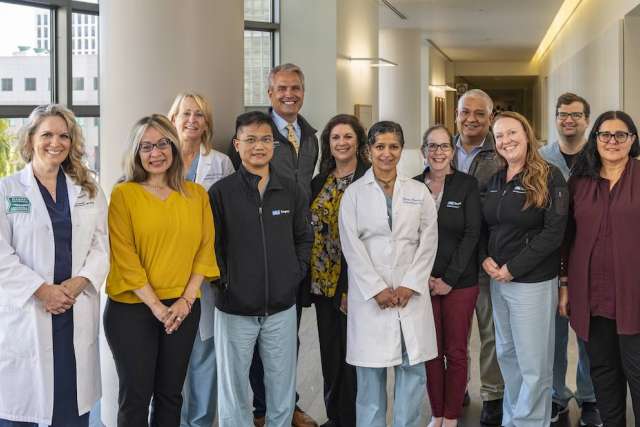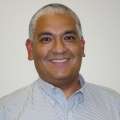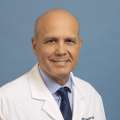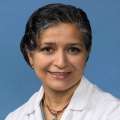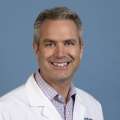Photo from Left: Melissa Moore, RN, Adriana Belay, NP, Mary Scotti, RN, Dr. Ming-Sing Is, MD, Dr. Leigh Reardon, MD, Diana Saikali, senior dietitian, Dr. Reshma Biniwale, MD, Dr. Nancy J. Halnon, MD, Dr. Juan Carlos Alejos, MD, Elan Moreno, RN, Dr. Ryan Willams, MD, and Alicia Khodakarami, administrative assistant, at 200 Medical Center in Westwood on Tuesday July 12, 2022. (Joshua Sudock | UCLA Health)
The Pediatric Heart Transplant Program at UCLA Health has become one of the nation’s preeminent centers of its kind and is now on the cusp of completing its 500th transplant.
Founded by Hillel Laks, MD, who in 1984 performed UCLA Health’s first pediatric heart transplant on a 7-year-old girl, the program is now overseen by Juan Alejos, MD, director of the Pediatric Heart Failure/Heart Transplant program and clinical professor at the David Geffen School of Medicine at UCLA.
The program has grown in volume from about five transplants a year to now between 10 and 13 annually. As importantly, over the past five years, the program has had excellent survival rates that consistently exceed national averages.
Dr. Alejos credits his team’s impressive statistics to the strength of its congenital heart surgeons, including Dr. Laks, who retired in 2021, and Glen Van Arsdell, MD, chief of congenital cardiac surgery at UCLA Health. Ming-Sing Si, MD and Reshma Biniwale, MD are congenital heart surgeons who, along with Dr. Van Arsdell, make up the surgical team.
“We now have such a strong congenital heart surgery program that we’re getting referrals for transplants for some of the most complex kids that other centers turned down,” says Dr. Alejos. “Our philosophy has always been to try to make it work somehow.”
Other centers are much stricter in terms of what patients they accept, Dr. Alejos notes; some turn patients down if the parents don’t have a car or don’t speak English or read and write.
“We’ve been aggressive with helping to make that work, and it’s continued to show in our results,” he says.
Team philosophy
Another reason for the program’s success is its team approach, Dr. Alejos says.
“We have a fantastic team that comes together very well. We all work together, and we’re almost like family in terms of how we work together as friends and colleagues.”
The Pediatric Heart Transplant team is anchored by the congenital heart surgeons. The team is supported by an interdisciplinary approach that relies on the expertise of pediatric cardiologists, nurse practitioners, social workers, dietitians, psychologists, physical therapists and a dental team.
Some of the core team members include Leigh Reardon, MD, Nancy Halnon, MD, and Ryan Williams, MD, as well as Dr. Alejos.
Nurse Practitioners Adrianne Belay and Helen Dutko and Pediatric Registered Dietitian Diana Saikali are on the front line in caring for these patients along with Alicia Khodakarami, the administrative specialist for the program.
“Our social workers and our psychologists work hard dealing with some very difficult cases,” Dr. Alejos says. “Say you have a newborn who needs a transplant — are the parents able to handle this? Are the parents able to get the baby to the hospital? This reflects the challenges the team faces in supporting overburdened and under-resourced families.”
The program also works with skilled intensivists who care for the children during the post-operative period. Dr. Alejos notes that some of the more complex cases require hospitalization for a month or longer. The UCLA Pediatric Cardiology fellows play a key role in the care of these patients and are very well experienced. Several have gone on to care for patients who have undergone heart transplantation.
“It takes a lot of work by all the people involved in caring for these kids to make sure they’re in the best shape possible,” he says. “To me, that’s one of our strengths.”
The family atmosphere not only attracts the highest-caliber physicians to the program but also contributes to its success, he says.
“We all work together and if one of us needs to be off, we cover each other seamlessly. If there’s a potential transplant, everybody is looped in so we can give an opinion. I think a lot of that is what has led to such excellent results,” he says.
Humble beginning
During the mid-1980s, UCLA Health was one of the few centers on the West Coast performing pediatric heart transplants, and it was common to get referrals from hospitals throughout California, Arizona and Nevada. At that time, the pediatric program was embedded in the adult transplant program and was run by an adult cardiologist.
Fresh out of his pediatric cardiology fellowship, Dr. Alejos stumbled onto the transplant program by accident in 1993 and never left.
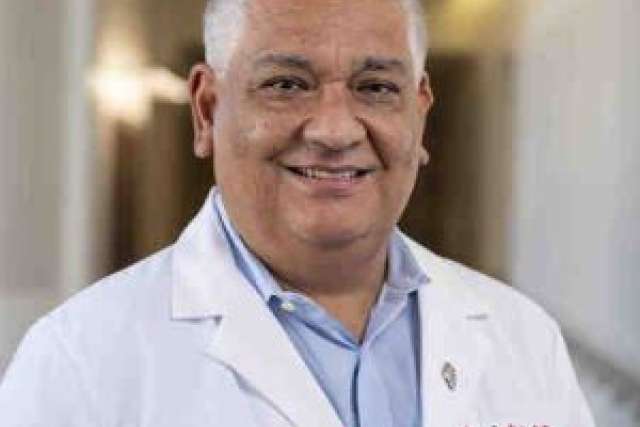
“I was a third-year fellow, and the person I was working with closely was doing transplants and interventional catheterizations. He went to Boston to get more training so … they made me the transplant person, with the adult program people as backup. I started doing it and I fell in love with it. From there I just moved forward and never looked back, and the program has continued to grow.”
Eventually, the pediatric program became independent from the adult program, and it established its own patient selection committee and its own protocols. A specialized program was developed by Dr. Reardon to transition patients to adult care services once they turn 21.
Today, Dr. Alejos says, most of the hospitals that formerly provided referrals have developed their own transplant programs. However, a robust waiting list, ventricular assist devices now scaled for pediatric patients, and the ability to diagnose heart failure or congenital heart disease prior to birth ensure UCLA Health’s program will continue to grow.
“Which we all love,” Dr. Alejos says. “That’s what we’re here for.”
Patients become family
Because of the follow-up care that’s required post-transplant, pediatric patients need to maintain close relationships with their transplant medical team.
“It’s important for us to be aware of what they’re doing,” Dr. Alejos says. “I joke that we’re gonna be part of their family.”
In turn, patients often keep in touch by sending graduation and holiday cards, photos and drawings, or invitations to important events.
Pre-pandemic, UCLA Health hosted special events outside the hospital, such as the yearly summer transplant picnic and annual year-end holiday party. These events brought together more than 300 transplant patients and their families with the medical team, to improve communication and support. Dr. Alejos says the team looks forward to resuming these events.
Dr. Alejos recently attended a memorial service for a 34-year-old former patient whom he hadn’t seen in many years. Afterward, the patient’s parents thanked him for giving them an additional 25 years with their son.
“That made me realize (transplant) has its limitations, but hopefully it brings something to these families,” he says.
“We know we’re a very aggressive program in terms of finding donors and transplanting, but I think we all recognize where these hearts come from,” Dr. Alejos continues. “This is a gift, and that’s why we do such diligent work — to make it work and make it last.”
Learn more about UCLA's Pediatric Heart Transplant Program.
Jennifer Karmarkar is the author of this article.
Related:
